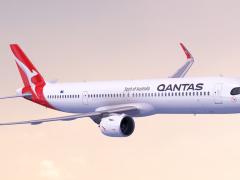The International Air Transport Association (Iata), in partnership with UK-based fintech company ipagoo, successfully completed the first ‘Iata Pay’ ticket purchase transaction within a live test environment.
Iata Pay is an initiative to develop a new payment option for consumers who are buying their air ticket directly from an airline website. It is made possible by the European Commission’s second Payment Services Directive (PSD2), as well as the Open Banking regulation in the UK. The regulations encourage direct debit transactions, which are payments made from the customer’s account directly into the merchant’s account, offering a high level of security to both user and recipient, and can be instantaneous.
According to Iata, benefits of its Iata Pay method for airlines are that it is cheaper than other payment options; it is highly secure, and allows for faster cash flow with near instant payment to the merchant; and it is simpler, reducing the amount of lost sales. Consumers will also benefit from the more secure, and simpler, payment method.
“Today’s consumers, and especially millennials, have expectations of multiple payment options, including mobile and peer-to-peer. Iata Pay responds to these expectations,” said Aleksander Popovich, Iata’s senior vice president of financial and distribution services. “At the same time, airlines are trying to manage significant card payment costs -- $8 billion (R111bn) per year and rising. A large part of this cost is incurred in direct purchases from airline websites.” Aleksander added that one of Iata’s strategic objectives was to support the financial sustainability of airlines, which included controlling their costs. To this end, Iata’s role will be to develop an industry solution allowing airlines to make this payment option available on their websites.
The live test was done under the UK’s Open Banking framework with Iata Pay pilot airlines, which included Cathay Pacific, Scandinavian Airlines, and Emirates. Iata is also working with Deutsche Bank on a prototype for European markets (excluding the UK), starting in Germany. The prototype is expected to undergo testing early this year.
If testing proves successful, Iata intends to expand it to other regions.












